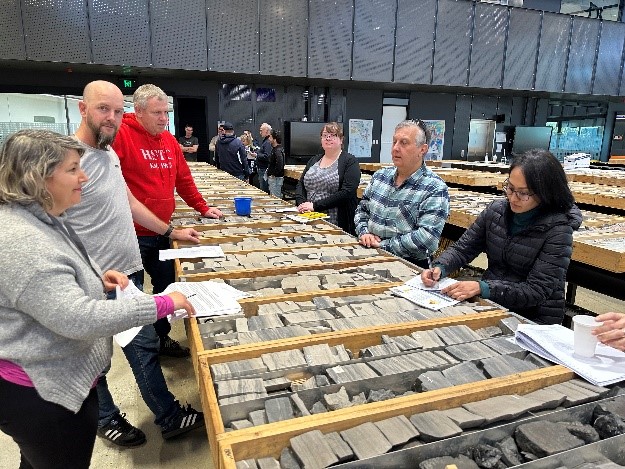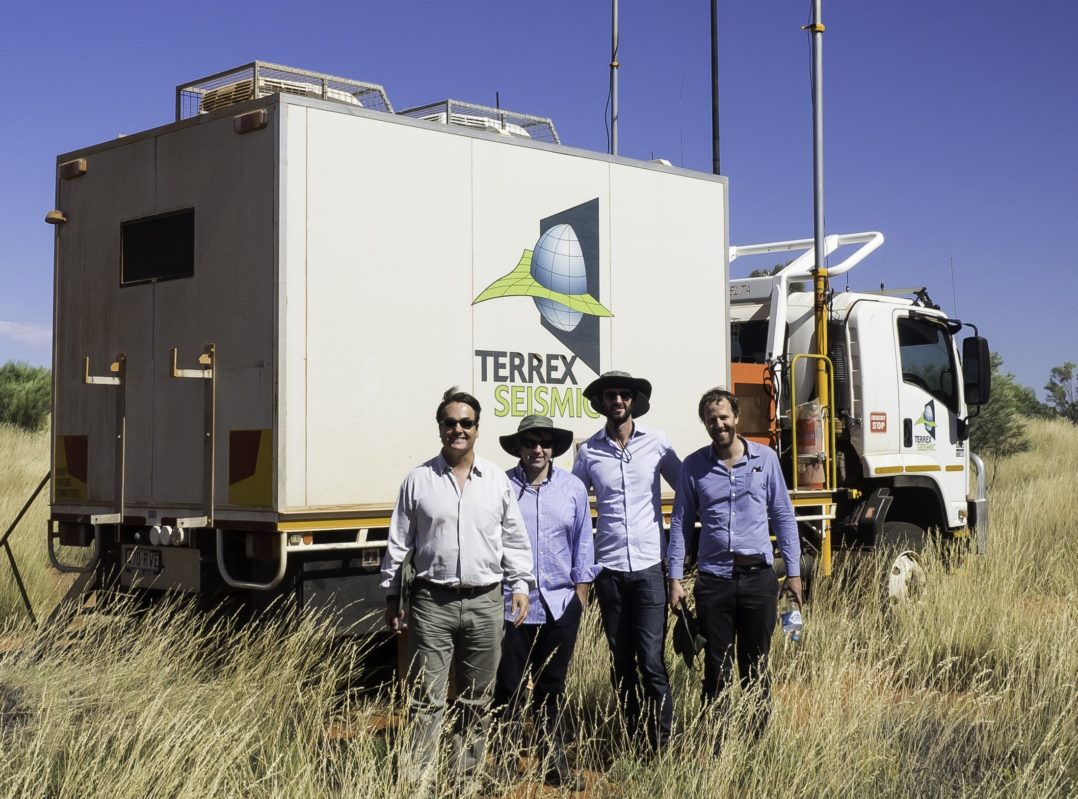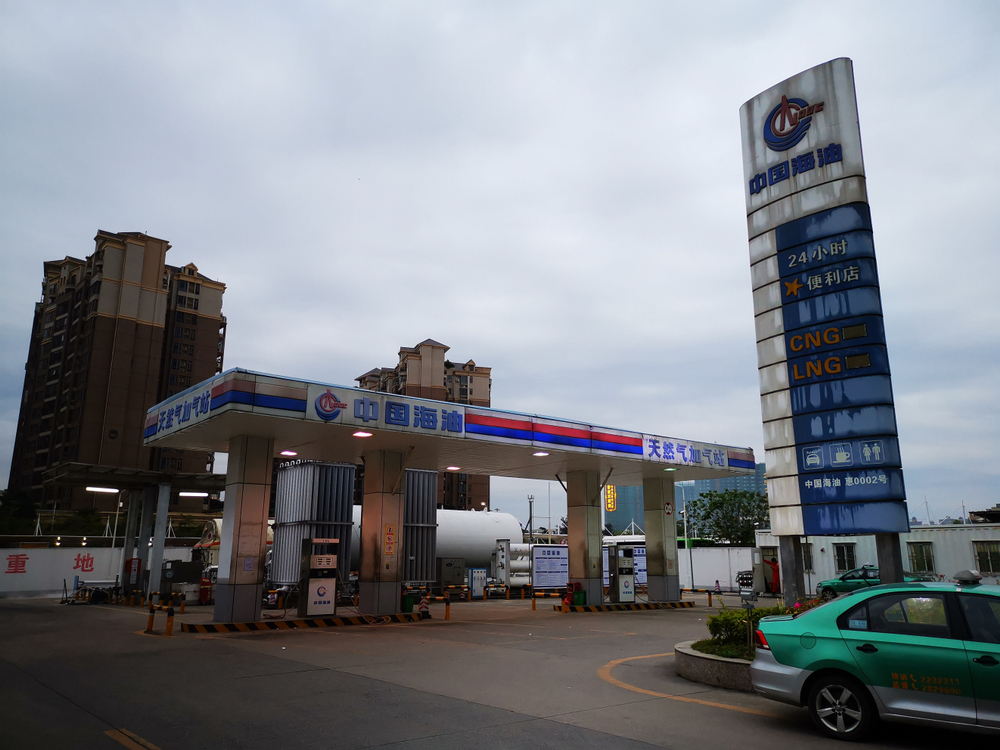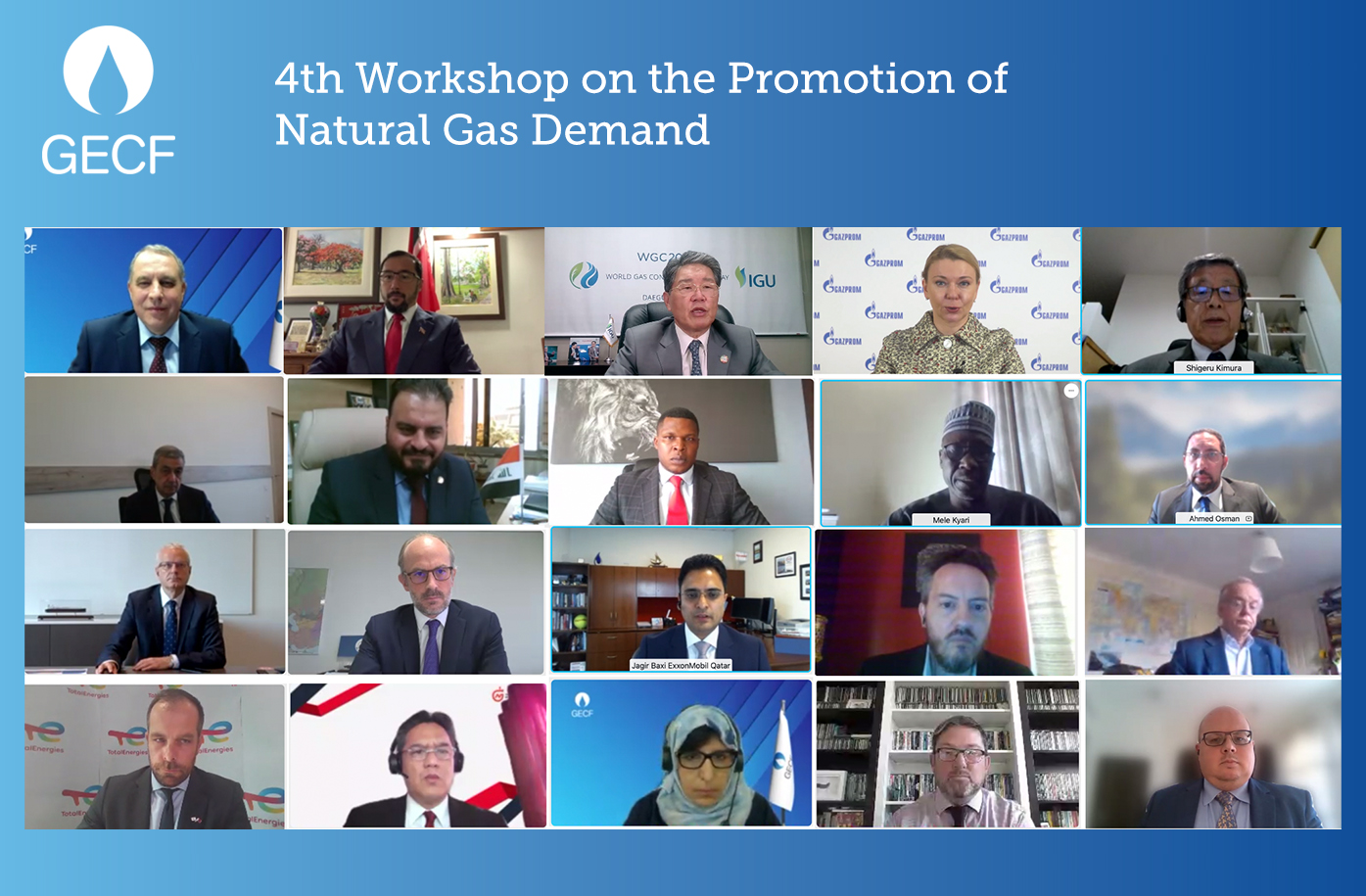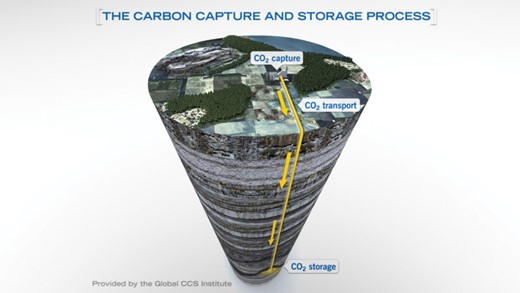At the June technical meeting one of the long-standing members of the SA/NT
Branch, Geoff Wood received his certificate for 40 years of continuous membership from Branch President, John Kaldi – congratulations Geoff!
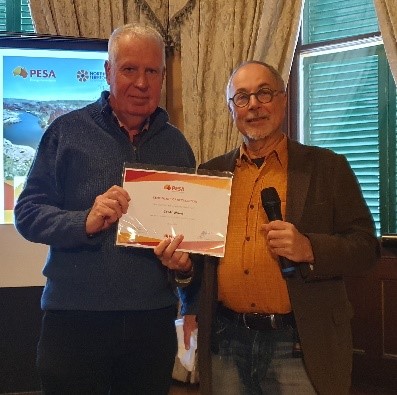
Membership
Under the brilliant leadership of the PESA SA/NT Branch Vice President, Paul Strong, 2024 has seen
the regular monthly lunchtime meetings continue with a smorgasbord of topics which are highly
recommended for other branches and webinars.
May 2024 – Chris Cubitt from the Geological Survey of South Austrlia presented the work he and
Paul Strong had done as part of a larger petroleum systems modelling (PSM) project in developing
gross depositional environment (GDE) maps using 7,965km of interpreted 2D seismic, interval-
specific isopachs with well log motifs, regional seismic facies analysis and depositional environment
(DE) interpretations from 772m of conventional core (23 wells).
The project interpreted varied depositional systems, including anoxic, extensive ice-influenced lacustrine, lacustrine turbidite, extensive fluvial/lacustrine, fluvial/flood plain and growth fault-bound ribbon-like alluvial fan apron environments.
GDE maps were shown for six key intervals: Casterton Formation, Lower Sawpit Shale (McEachern),
Sawpit Sandstone, Upper Sawpit Shale, Pretty Hill Sandstone and Laira Formation. The petroleum
systems modelling showed for the first time significant oil and gas generation and expulsion in the
lightly explored Robe and Tantanoola Troughs, as well as the Penola Trough. Play analysis has
recently been conducted by DEM for all 8 intervals using the GDE mapping and the PSM results, with
the intention of stimulating exploration for hydrocarbons in this region, including determining areas
for a potential acreage release in late 2024. The results have been documented on the South
Austrlaian Department for Energy and Mining, Energy Resources website on the Geology and
Prospectivity page.
In June Simon Lang from the University of Western Australia gave his AGC Geoscience
Champion Lecture titled “Analogues for Subsurface Characterization for the Energy Transition.” The
energy transition over the next few decades will provide challenges to all geoscientists who will
need to extend the skills and lessons learned from fossil fuel exploration, development and
production to carbon sequestration and utilization (CCUS), conventional and H2 gas storage,
sediment-hosted copper, uranium and lithium exploration, and related hydrological and
geotechnical issues.
The presentation focussed on depositional systems and their subsurface reservoirs/seals/baffles, and how analogues from seismic, well data, producing fields, outcrops and modern depositional systems can help constrain the uncertainties involved with subsurface geo-modelling, that will still be needed to develop the new energy resources needed for the energy transition.It clearly demonstrated that geosceince matters in the energy transition.
Technical meetings
July 2024 – Simon Lang was joined by Bruce Ainsworth (Head of Geology at Santos) and Carmine Grasso (Department for Energy and Mining) to review core at the South Australia Drill Core Reference Library, which is in the heart of the newly revitalised Tonsley Precinct.
The reviewed cores related to ancient shoreline plays of the Cooper-Eromanga basins. Intervals from the Epsilon, Murta and Coorikiana formations were the focus of the workshop. Workshop participants gained an understanding of a key range of shoreline systems and types from the Cooper- Eromanga cores focussing on depositional process, facies associations, architectural interpretation, appropriate partial analogues, and implications for field development.
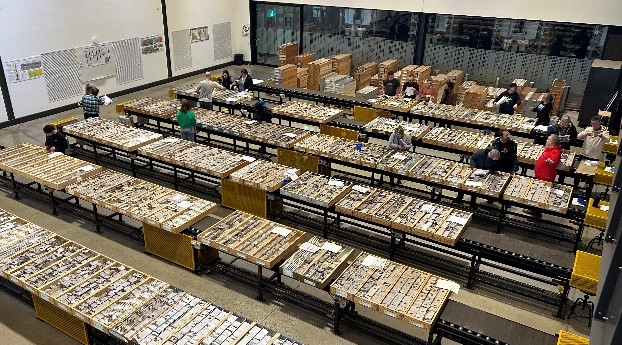
Sponsorship
Carbon capture and storage (CCS) will play a critical role in the decarbonisation of Australia’s economy and in our region.
It is why the SA/NT Branch was a proud major sponsor of the IEA Greenhouse Gas R&D Programme’s (IEAGHG) International CCS Summer School held in Darwin during June. The sponsorship monies coming from the successful CCS short course organised by the branch held earlier this year.
45 students and early career professionals from 28 countries, along with 15 CCS experts from around Australia and the world, including our Branch President, Dr John Kaldi, came together for a week of education on all things CCS.
The school was embraced by the Northern Territory Government and Minister for Mining Mark Monaghan and included several CCS-focused events including a breakfast and panel discussion hosted by the Energy Club NT Energy Club.
Australia’s CCS experience and expertise featured heavily with expertise from CSIRO, CO2CRC Limited, Santos Ltd, INPEX Australia, Chevron Australia, ExxonMobil and Curtin University.
IEAGHG Director and General Manager Tim Dixon said the summer school is “helping develop the next generation of CCS leaders, who will be critical to advancing the technology globally”.
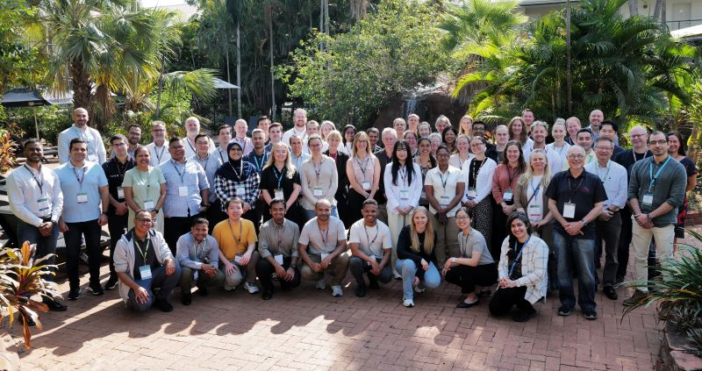
Upcoming technical meetings and field trips
The forward plan for luncheon meetings is full of a diverse range of topics. All meetings are held at the historic Ayres House on North Terrace on the last Thursday of the month.
* 25 July – Markus Häring (recently returned to Adelaide as a consultant) will present “Exploration for Radioactive Waste Repositories Near Urban Areas.”
* 15 August – Ben Rostrom (Professor Emeritus, Earth and Atmospheric Sciences, University of Alberta) will present the 2024 Birdsville-Dreiss Distinguished Lecture (GSA Hydrogeology Division) titled “Geology and Hydrogeology at Aquistore, Canada’s first CO2 storage project associated with a commercial-scale coal-fired power plant.”
* 26 September – Tim Rady (Geomorph Energy) will present on their PNG exploration program.
* 31 October – Glenn Toogood and Tim Rady (EntX) will present “Salt Cavern storage potential of the Polda Basin, South Australia.”
When the weather warms up the SA/NT Branch has organised two brilliant field trips. You should save the dates and be ready to participate in the joy of geoscience.
* The ever-popular, annual Geology of Wine trip this year is to the Clare Valley. It will be held Sunday 13 October and be led by Professor Alan Collins (University of Adelaide).
* After a couple of successful trips the Carrickalinga, Myponga & Cape Jarvis field trip ably led by Rhodri Johns and Elinor Alexander is planned for the weekend of 16-17 November.

